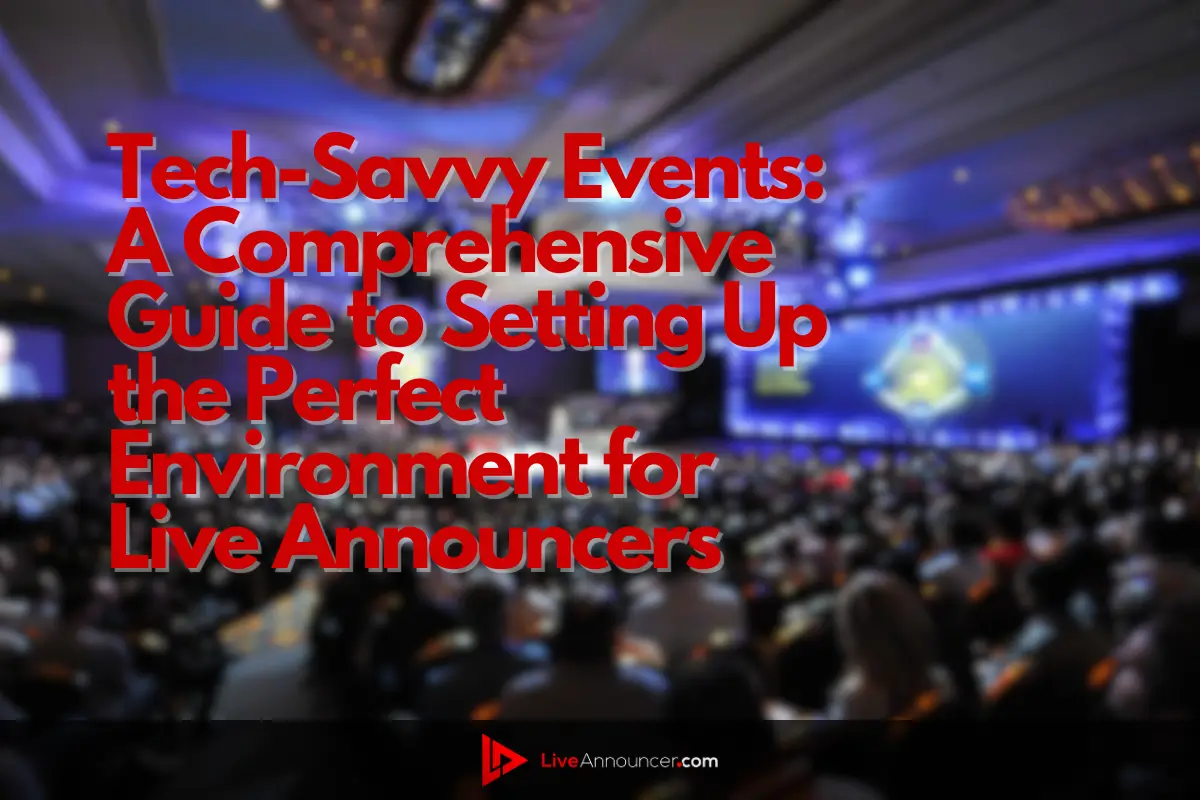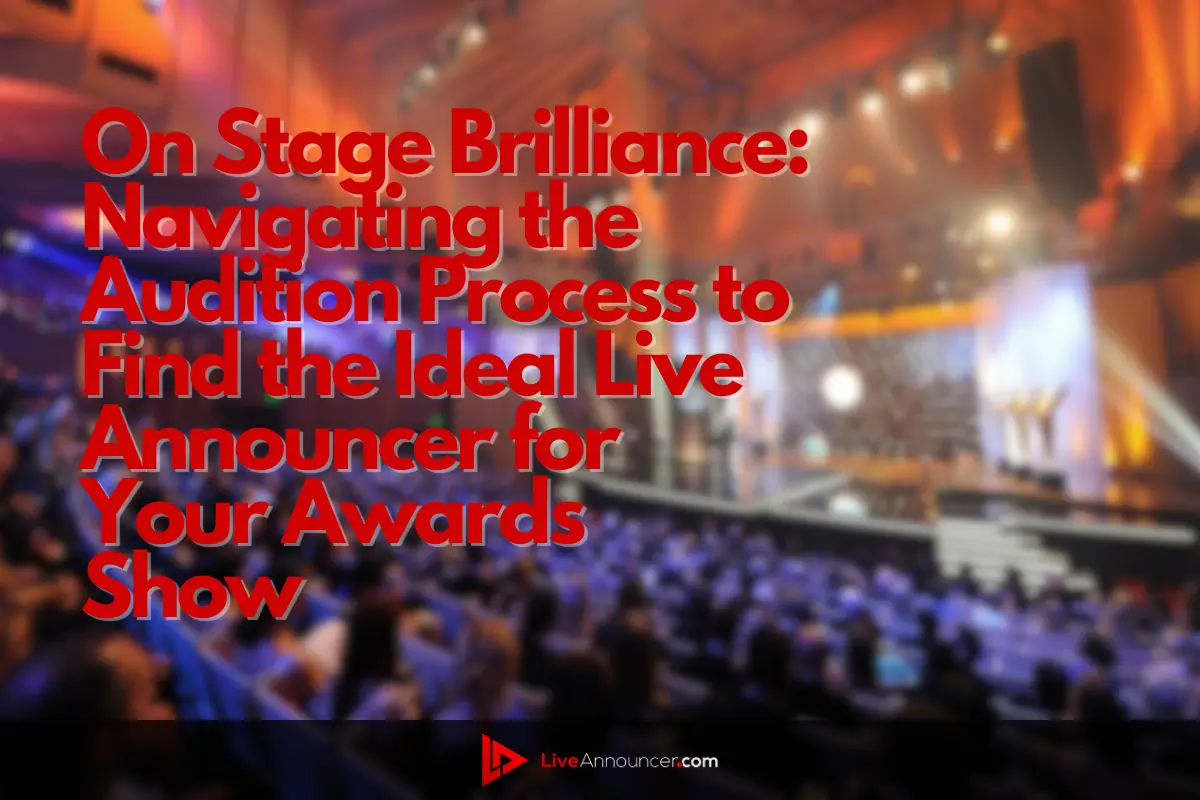
As a meeting planner, you've done all the hard work leading up to your big event - secured a venue, sold or organized tickets, and planned special events within the big event.
You even invested in a spectacular live announcer to give your event an extra special touch. However, hiring a live announcer is just the beginning.
A live announcer can go a long way in making your event or meeting a smashing success, but it's up to you to guide the way.
Here's a look at 8 vital things all meeting planners need to tell the live announcer before your event gets underway.
Chances are, your live announcer knows who the main client of the event is, but that's all they may know - a name.
Since that client is the one who has signed the contract, it's important that the live announcer knows everything about them.
Review anything about the client that could help the live announcer represent them effectively. Talk about the client or the company's history, what exactly they do, and what this event is representing as far as their individual brand. Don't rely on a live announcer to do their own homework, especially if anything about who the client is or what they do is up to interpretation.
Give the live announcer the top 5 things to do know about a client and insider information that will help them lead the event smartly yet engagingly.
Events may have a wide-ranging - and unexpected - audience.
Generally, though, the client will have a good idea of who is coming and not just who the target audience is but what the targeted message should be.
Talk to your live announcer thoroughly about who you expect to come, if they were invited and why, and the overall goal of the event.
Review the key demographics you expect to attend, if there are any special guests, and any other pertinent information.
For example, are they all medical doctors? Are they all weight loss success stories? Are they all people who are struggling with something?
This doesn't just when a date and time the live announcer needs to be there for the event.
Be upfront and clear about any type of rehearsal times you need the announcer for, if you want to have several practice times, or if they need to be there for soundcheck or to run through anything that may be up in the air.
Check to make sure the live announcer is on the exact same schedule you are - and then triple-check.
And don't forget to exchange all contact information in case an emergency or a chance arises.
A live announcer will typically have a script provided by yourself or a company. Make sure they have read through it properly and ask if they have any questions.
More importantly, discuss any guidelines as far as tone or language both within the script and for the overall event.
A live announcer may read something in the script differently than you had in mind or may be inclined to go off-script. If that's not allowed, discuss that with them.
If going off-script is allowed, go over some guidelines of just how far they can go if certain things are OK for them to integrate into their announcement, for example, general jokes, a happy tone, or poking gentle fun at the nature of the event or participants.
Nothing is worse than having the names of big-name clients (or the company) mispronounced by a live announcer.
To avoid this unprofessional faux pas, be sure to review the pronunciation of important names with the live announcer before the show gets on the road. If there needs to be a cheat sheet written out, have one ready for them.
In the same vein, if there are special guests being highlighted during your event or multiple attendees speaking, review those names as well.
It takes a lot of people to pull a meeting off.
Make sure the live announcement is aware of both the internal staff working on the event and the on-site venue production staff they may be interacting with during the event.
That includes the venue engineer, stage manager, any fellow event planners, and a script supervisor, as well as a lighting crew and the group handling all the other technical aspects of the event.
Most high-profile events have an approved script that may have taken you several months to write and get approved.
Review the script with the live announcer thoroughly, especially if there are any changes - big and small - that must be made.
Sometimes these changes can happen the day of, so make sure the live announcer is aware that this may be a possibility. Work out a way to review script changes with them even up to the last minute.
While the live announcer is the voice and lead of the show, there's a lot of crew working throughout the event to make sure everything goes smoothly.
Be sure the live announcer is not just aware of the stage manager and tech crew, but rundown a brief overview of all of the technical aspects that they may encounter.
This includes the type of sound system and who is the go-to to fix any problems.
This also may include the lighting crew and if there are any audio or visual elements that are a major part of the script your live announcer will be using. It will help keep them on their toes and not feel off guard by any moment of the event.
The microphone is a big deal for both the event as a whole ad the live announcer. Make sure everything is working currently and that the live announcer is comfortable with the mic.



